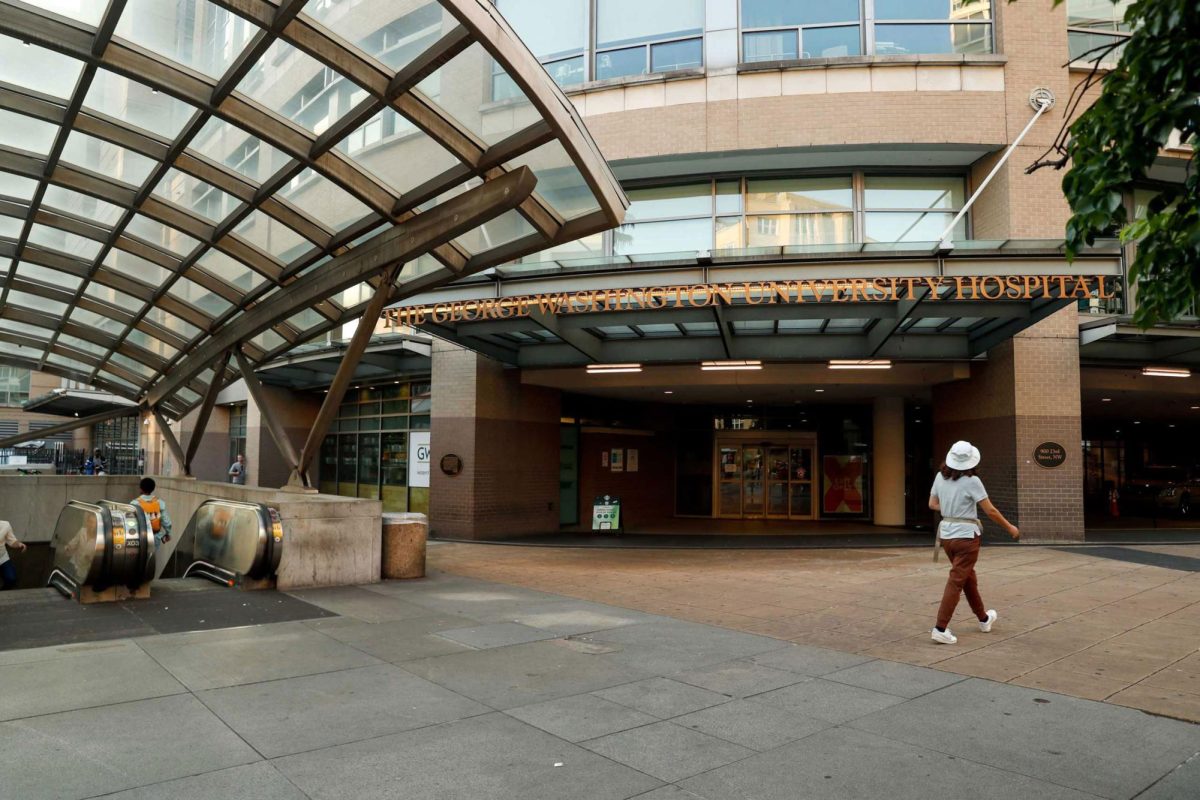The National Labor Relations Board ruled GW Hospital’s contract negotiations with a union unlawful last week, 10 months after vacating a previous decision that claimed the hospital abided by federal labor laws.
The new ruling states that the hospital violated the National Labor Relations Act — a 1935 piece of legislation that authorizes employees to participate in unions to advocate for better working conditions and wages — after it “failed” and “refused” to bargain with the 1199 Service Employees International Union in “good faith” from 2016 to 2018 and then ceased recognition of the union in October 2018. The ruling orders GW Hospital to recognize and bargain with the union in good faith, rescind changes the hospital made to employment terms and conditions unilaterally after October 2018 and compensate employees for any lost benefits, earnings and all adverse tax consequences and expenses.
“This is an incredible win for GW Hospital workers, who were without union representation for years,” said Lisa Brown, the executive vice president of 1199 SEIU in Maryland and D.C. in an email statement. “We look forward to wrongs being righted through the make-whole process.”
1199SEIU covers the cleaning, food service and ambulatory workers at the hospital. GW Hospital nurses voted for union representation from the D.C. Nurses Association last July to address their concerns about a lack of staffing and training with hospital officials.
A GW Hospital spokesperson did not immediately return a request for comment.
The NLRB’s ruling states that over the course of 14 months, from March 2017 to June 2018, the hospital pushed three bargaining proposals in bad faith — a no-strike provision that eliminated arbitration and a management rights clause that gave the hospital unilateral control over “virtually all significant terms and conditions of employment.” The parties’ five-year collective bargaining agreement contract was set to expire in December 2016, which prompted the parties to hold more than 30 bargaining sessions between November 2016 and October 2018 where they were unable to reach a complete agreement.
The recent ruling states that the NLRB agreed with the judge on the case that “pressing a combination” of the bargaining proposals while negotiating with the union constituted bad-faith bargaining on the hospital’s part.
“The Respondent’s proposals, taken as a whole, would have left employees and the Union with substantially fewer rights and less protection than provided by law without a contract,” the ruling states.
The NLRB vacated a previous decision in July 2023 which initially deemed the hospital’s bargaining with the union lawful and scheduled a rehearing after they found William Emanuel — a former board member who voted in favor of the 2021 ruling — had an undisclosed $50,000 stake in a mutual fund that invested in Universal Health Services, the parent company of GW Hospital. The NLRB’s Inspector General found Emanuel’s failure to disclose his shares in UHS violated federal codes regulating financial disclosure and posed a potential conflict of interest to the case.
Workers in 1199SEIU had represented more than 150 GW Hospital employees for more than two decades before the hospital received a decertification petition on Oct. 25, 2018 — which 81 of the 156 employees in the bargaining unit signed — and notified the union that it was immediately withdrawing recognition of the 1199SEIU with claims that the union had lost support of a majority of employees in the bargaining unit. Hospital officials then canceled all future bargaining sessions and implemented a new compensation structure and employee wage rates.
In response, union workers filed a complaint with the NLRB in October 2018 alleging the hospital bargained with the union in bad faith by opening negotiations with a “wish list, throw-in-the-kitchen-sink” proposal, and claimed the hospital could not legally withdraw their recognition of the union due to their alleged “bad-faith bargaining.”
An administrative law judge ruled in favor of the union in September 2019 before the NLRB overturned the ruling in May 2021, determining the hospital was engaging in “hard bargaining” but didn’t violate labor law because the union had allegedly insisted on maintaining the terms in the expired agreement instead of negotiating with the hospital to form a new one.





